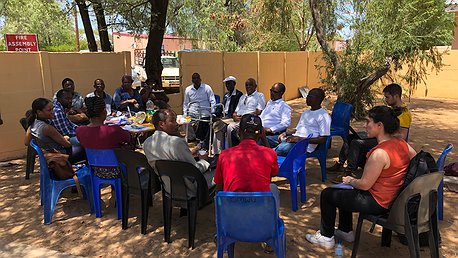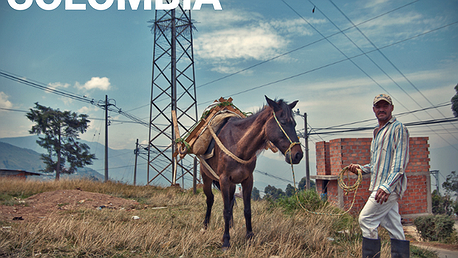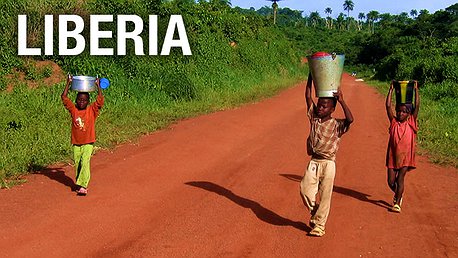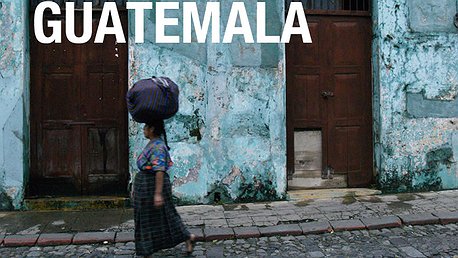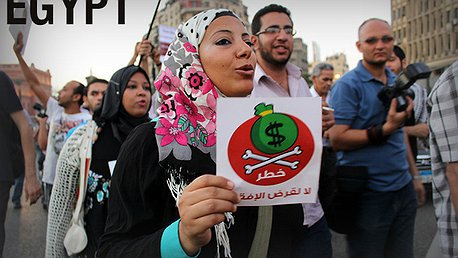Country
Showing 1 to 30 of 30 results
Uganda
In recent years Uganda has enjoyed a sustained period of stability and economic growth. Despite significant progress in reducing the overall number of people living in poverty, however, some two-thirds of the population – or 21.4 million people – continue to live on less than USD 2 per day. Government statistics also show stark disparities between urban and rural areas, with nearly three quarters of those living outside major cities at risk of poverty.
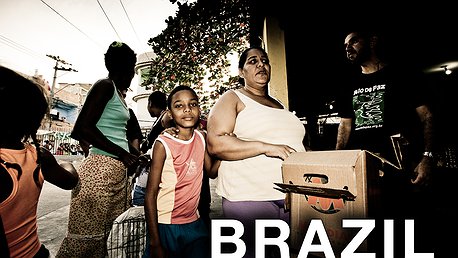
Brazil
Over the past decade, many millions of Brazilians have been lifted out of poverty, largely thanks to public investments in health, education and social protection. Not coincidentally, the country experienced great economic success in these years, buttressed by a burgeoning domestic demand-driven economy.
Switzerland
Switzerland rightly prides itself as a champion of women’s rights and gender equality internationally. Yet, as the world's most significant tax haven, the Alpine nation may be undermining these very values.
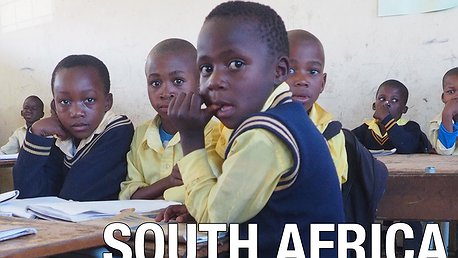
South Africa
Post-apartheid South Africa offers a striking case study of the intersection between economic inequality, social exclusion and human rights deprivations.
United States
Despite the fact that the United States is the world's richest economy, it lags behind many other nations in fulfilling the needs of all of its citizens: 20 percent of children under the age of five live in poverty - the highest child poverty rate of any fully-industrialized nation; millions of people still lack health insurance; between 40 and 44 million are functionally illiterate; and 28 million people face food insecurity.
Perú
Peru has presented itself to the world in the 21st century as a prosperous and resilient economy, with significant achievements in terms of reducing poverty and inequality, despite recurring episodes of political instability. However, this appearance obscures other important phenomena that reveal limitations in the guarantee of human rights.
Ireland
For many people in Ireland, the Celtic Tiger represented more than a successful economic model. Having long suffered the twin blights of poverty and unemployment, the boom years of the 1990s and early 2000s symbolized a dramatic reversal of fortune that brought with it a newfound confidence and optimism.
Madagascar
The prevalence of malnourishment in Madagascar is higher than it was in 1992, and acute child malnutrition is on the rise. The Malagasy people also face low and unequal access to safe water, sanitation and health treatment. These problems suggest possible failures on the part of the government to give priority to the progressive realization of economic, social and cultural rights according to maximum available resources.
Kenya
Kenya is generally perceived as having made significant advances in recent years. In comparison with other sub-Saharan African countries, Kenya appears to be making progress in realizing economic and social rights and, significantly, has adopted strong protections for economic and social rights in its 2010 Constitution.
India
Although India saw higher economic growth from 1995 to 2005 than its South Asian neighbors, it had one of the smallest declines in under-five mortality rates. This, and the vast gender disparities in primary education, suggests that India is not realizing economic and social rights progressively according maximum available resources, nor is it ensuring equal treatment in access and enjoyment to these rights.
Ecuador
Latin America provides a strong foundation for the promotion of economic and social rights, given its long history of human rights activism, the flourishing of popular movements, and the fact that economic policies in the region have created some of the most inequitable societies in the world.
Ghana
In April 2002 the Center for Economic and Social Rights took part in the International Fact-Finding Mission on Water Sector Reform in Ghana. The resulting report found that treated water was available to 62-70 percent in urban areas and 35-40 percent in rural areas. In urban areas, however, only 40 percent of people have working tap water.
Cambodia
Decades after the end of the war, the majority of Cambodians continue to live in poverty while gaps between rich and poor, and urban and rural areas continue to grow. Cambodia's efforts to address the widespread deprivation and inequality have been largely inadequate. Despite a steady increase in GDP per capita, government expenditure on health and education is comparatively low, raising questions about whether the government is dedicating the maximum available resources to realizing economic, social and cultural rights.
Equatorial Guinea
Equatorial Guinea has become the richest country, per capita, in sub-Saharan Africa since the discovery of oil and natural gas reserves in the 1990s, yet the majority of its people remain extremely poor. Despite its increased wealth, the realization of the rights to food, health and education has declined.
Bangladesh
Despite an increase in national income in recent years, Bangladesh has seen a retrogression of basic economic and social rights among its children. More girls than boys are malnourished and children in slums live in great poverty and are less likely to attend school than their urban non-slum and rural counterparts.
Bolivia
Inequality in education and health in Bolivia is striking. The gaps in child mortality and malnutrition are wider in Bolivia than in other Latin American countries. Disparities in literacy rates between urban and rural residents are vast. These inequalities suggest Bolivia is failing to ensure equal enjoyment for all people of economic, social and cultural rights.
Angola
Although Angola has one of the highest levels of GDP per capita in Sub-Saharan Africa, average life expectancy is 41 years and 69 percent of Angolans live below the poverty line. The country's 27-year civil war took a heavy toll, but given its resources, data suggests not enough progress in realizing economic and social rights has been made since the end of the war in 2002.
Afghanistan
Photo courtesy of Jason Florio From 2001 to 2002, following the tragic events of September 11 and the ensuing US military invasion of Afghanistan, CESR worked in two areas:
Syria
The 2011 uprisings in the Middle East heralded a new era in the Arab world. Never before had the indivisibility and interdependence of civil and political rights with economic and social rights been more apparent. The Syrian government employed a climate of securitization and secrecy in order to undermine the pro-democratic calls, however, and a lack of accountability further restricted the procedural rights needed in order to fully gain political, economic, social and cultural rights.
